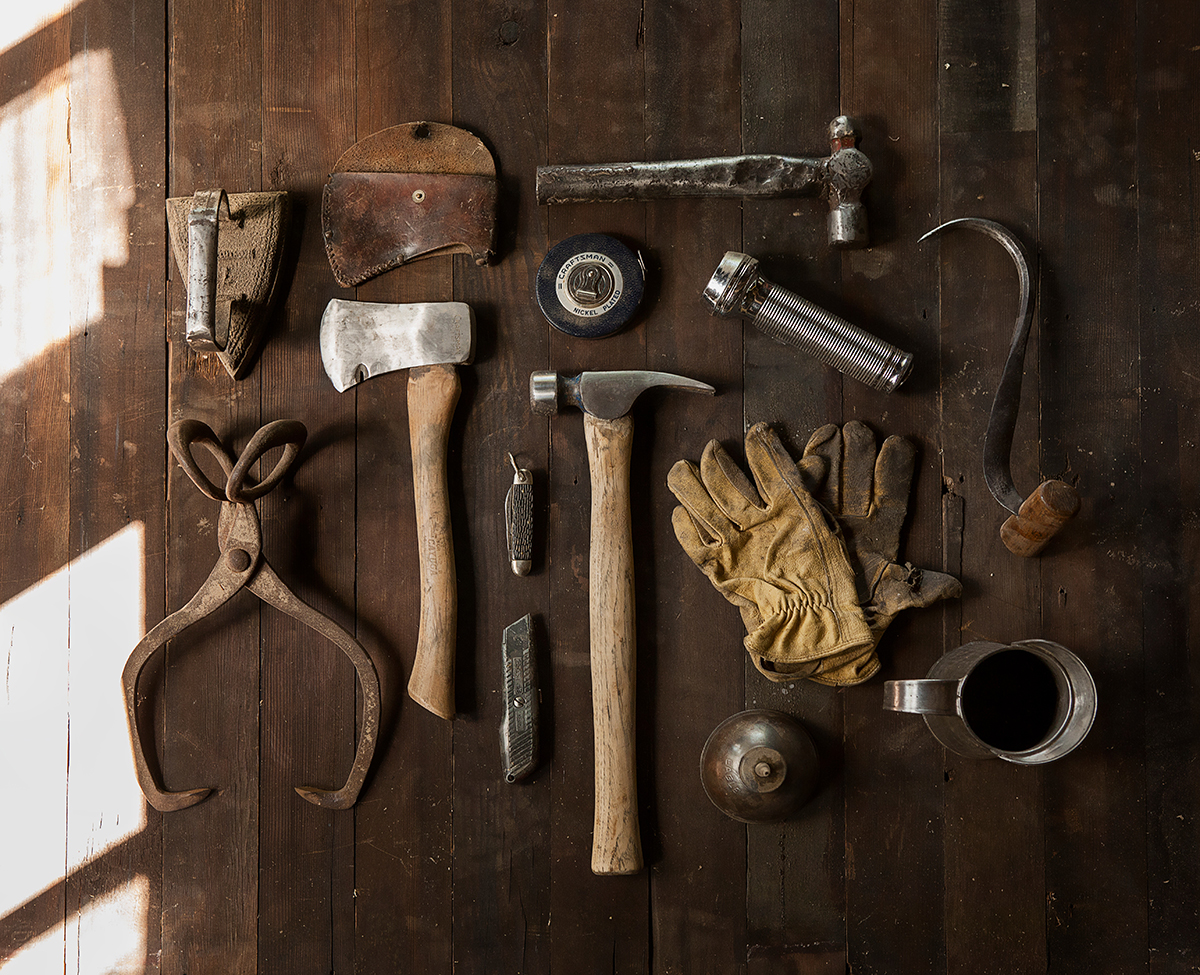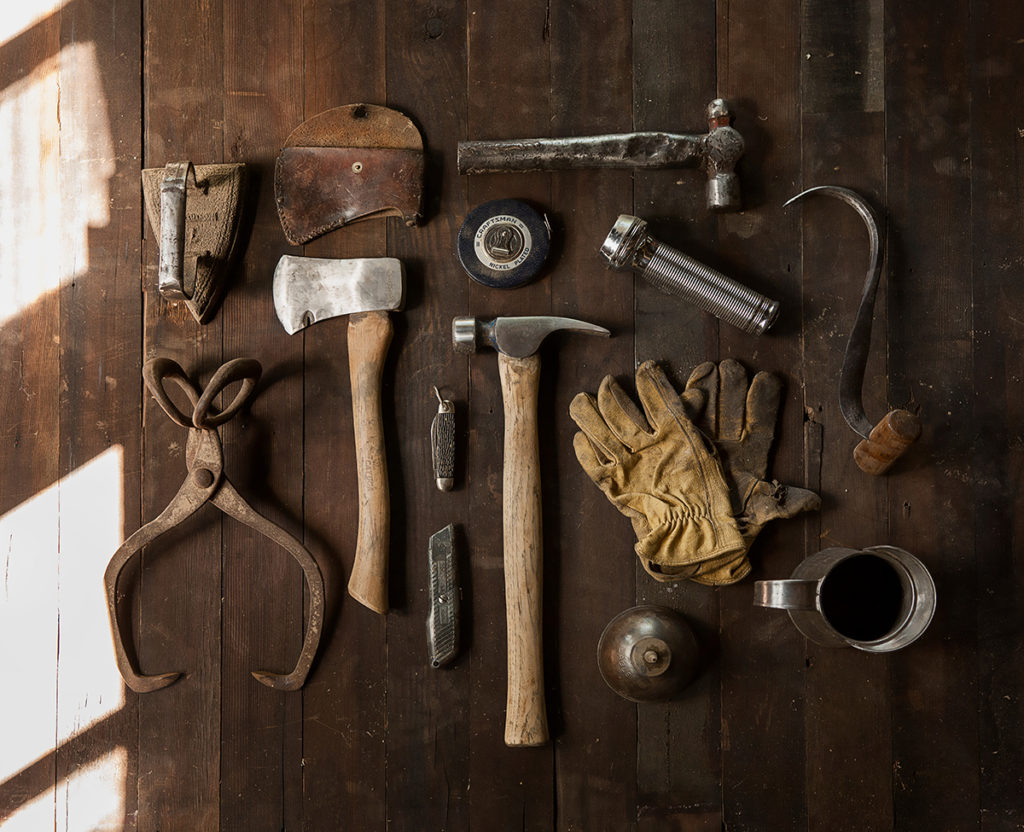Most Recent News


Popular News




This list isn’t your normal online basic life skills list. This is a list of only the most essential skills that everyone should master.

There are certain things in life that everyone should know how to do and know how to do well. Lacking these basic life skills will surely make everyday struggles (and some emergencies) incredibly more challenging.
I’ve compiled a list of some of the most essential. There are some that I debated about, but decided not to include here. I only want to include those that I feel are of paramount importance.
This list isn’t your normal online basic life skills list that includes stupid and lame catchphrases like “know how to apologize” and “know how to let your guard down”. No need to just regurgitate the same motivational BS that plagues most of these self-betterment lists.
This is a golden broken-down list of things that everyone reading this should know how to do 100% without referencing Google.
1 – Medical Emergency Training. This includes CPR, Heimlich maneuver, Tourniquet procedures, and building an emergency medical kit. It is not difficult to learn CPR or Heimlich, but they are essential to know. 70% of Americans state they don’t remember how to do it. It takes 5 minutes to learn and try it on a test-object. You’ll thank me if a loved one ever needs them. Tourniquets are trickier. They may take a bit more time to learn but are also necessary to stop someone from dying of blood loss. Just remember, they are only temporary solutions. Finally, make sure to have a basic emergency kit handy at home. Find a first-aid checklist and gather those items (and know how to use them correctly!)
 2 – Treat Basic Illnesses. Things like burns, frostbite, and allergies. Compile a strategy to deal with common illnesses that you may encounter, so you have a safeguard against them. These basic life skills will come in handy if you are ever without immediate medical treatment.
2 – Treat Basic Illnesses. Things like burns, frostbite, and allergies. Compile a strategy to deal with common illnesses that you may encounter, so you have a safeguard against them. These basic life skills will come in handy if you are ever without immediate medical treatment.
3 – Nutrition and Cardio. Learn about calories in vs calories out. Understand the differences between saturated and trans fat, carbs, and protein. Also, research the good fats and healthy calories versus frozen pie fats. Know how to do cardio efficiently, and without passing out. We all need to be able to travel long distances by foot if necessary. A good method is to do triathlon training, even if you don’t plan to be in a triathlon. Focus on getting better at running, biking, and swimming to understand your body’s exceptional capabilities better.
4- Self Defense. Learn to defend yourself from a variety of attacks. Things such as one assailant, multiple assailants, knife attack, gun attack, and other-weapon attacks. It’s a good idea to be proficient in one self-defense tactic, but knowledgeable of them all. Consider taking a Krav Maga, MMA, or boxing class to get an idea of what I am talking about here. Also, get yourself to the gun range for target practice. My final piece of advice for self defense is to get punched in the face (in a safe environment of course). Yes, I am serious. You need to know the feeling, so if it happens to you, you will be able to respond. Too many people go throughout life without knowledge of what getting hit feels like. Then, in a potentially life-or-death situation, they figure it out. It’s better to figure it out beforehand, so you can learn how to minimize the hit (go with the punch, don’t resist it). This is another great reason to take one of the aforementioned classes.
5 – Learn to weightlift properly. Don’t be “that guy” that goes to the gym not knowing what the hell they are doing. Take a half hour before you go to develop a plan, learn the correct form of what you are going to do, and then hit the weights. Everyone should be stronger, and know how to get there with the correct form to not injure yourself.
6 – Learn about tools. Learn the difference between a screw and a nail (It is sad I have to say this). Buy a drill. Learn the differences between pliers. Get some screwdrivers, utility knives, a tape measure, a hammer, saws, duct tape, superglue, sockets, level, and a putty knife. I may have missed a few, but you get the idea. And learn how to use them! Put something together just for fun.
7 – Use those tools for home repair. A vast amount of calls to electricians, plumbers, and other workers can be fixed with the right tools and basic knowledge of how things work. Most likely, you don’t need to spend 100’s of dollars to fix a basic pilot light problem.
8 – Mending clothes. Learn to stitch and sew. There is no reason to throw away a very expensive piece of clothing for a small tear. You can fix it easily and cheaply.
9 – Cooking. Look, you don’t need to eat ramen or frozen meals every day. It is really easy to cook things, trust me. You can cook eggs in 5000 different ways, but they are still eggs. Get an idea of how to cook, it is a great skill to have. It also ties in great with learning about nutrition mentioned above!
10 – Storage. Storing food, water, and medical equipment requires knowledge. Where are you going to keep everything to ensure it stays good for a long amount of time? It is important to learn how to store pretty much everything you own, responsibly. Storage helps keep everything in working order so you focus more on bettering your other basic life skills.
11 – Repairing and knowing electronics. This is one of the harder ones, but also one of the best. For example, my phone screen cracked a while back. Instead of shipping it to the dealer to fix for $175, I did it myself. Cost me $13 and the thing has been working flawlessly for over 6 months now. It’s good to have a handle on electronics because they are the future. You don’t want to be left in the past trying to keep up with them. This ties in with programming and handling computer software. Get a basic grip on these tasks so you have an idea of what to do if they aren’t doing what you want them too. But don’t tell other people you know how to do this or you’ll become the “tech guy” that they want to constantly fix their electronics.
12 – Learn to jumpstart a car or truck. Listen, it’s not that difficult. I promise you. You’re not repairing a transmission here. There are a total of 4 things you have to connect.
13 – Oil change. Having the know-how of doing an oil change is essential. That way, you can do your own yourself. You won’t have to get scammed by shady auto-dealers or over-charged by a mechanic. Plus, it makes you feel great knowing you can do it well.
14 – Change a flat. You need a jack and some stands. You jack up the car. Put the stands under it. Take the tire off. Put the spare on. You don’t need to call roadside assistance to help you with this one.
15 – Other basic car tasks. Things like changing windshield wipers, changing license plates, and changing air filters are great tasks to do yourself. They take practically no time at all and save you a trip to the mechanic. Mastering these basic life skills will aid you in knowing how to respond to basic car problems, such as your windshield wipers not working well.
16 – How vehicles work. This one is important because it will help you if you ever have problems that a mechanic must address. What is causing the issue? Learn the different sounds that cars make when a problem is arising. The screeching from the brakes? Maybe you just need new pads. A belt squealing? Figure out how to pinpoint which belt is making the noise. I’m not saying you need to learn how to swap out engines, but learning the basics of a car and how it runs will help you tremendously when you face car problems.
17 – Negotiating and haggling. You ever plan to buy a car? You’re going to need to haggle. Otherwise, you are going to get screwed by the car salesman. This skill doesn’t just apply to car sales, but to nearly all communication. You need to be able to negotiate what you want or expect while also matching their negotiation tactics as well. An easy way to learn this skill is to watch/wait for someone to give you an offer for anything. Whether it is a business idea or your girlfriend asking you to take out the trash. After the offer is made, return a counter-offer (even if you are okay with the original offer). You don’t need to make the counter-offer anything extravagant, but it will help you with developing the building blocks of negotiation.
18 – Persuasive and assertive communication. Learn to persuade. Learn the tools of how people come to change their mind and agree with you. And also learn how to use that to your own advantage, especially in career endeavors. Being assertive requires confidence, so before you work on assertive communication, you must work on confidence. After you have a semblance of confidence, you can begin being more assertive. Deliver your requests with confidence and you will see a drastic change in how people respond to your requests.
19 – Leadership. Leadership requires negotiation, persuasion, and assertive tendencies. You need the confidence and the communicative skills to be a leader. Instead of always playing the follower, you can lead others through assertive communicative dialog and your actions. This is an important skill to have, especially if an emergency arises. It is a lot of hard-work to get there, but if you practice the above two, you will have a better base to start on your path to leadership.
20 – Know how to start a fire without matches. Do I really need to say anything more here?
21 – Know how to get fresh water. Whether you get it from rainwater or from filtration techniques, find a tactic that works for you and master it. This basic life skill is life saving should there ever be a water shortage or you are unable to get traditional water sources.
22 – Know how to get food. Again, I don’t care how you do it. Whether it is through MRE stockpiles, knowledge of growing plants, fishing, hunting, etc, just have a tactic in mind in case SHTF and you need food for you and your family. I recommend having a minimal stockpile of food for short-term (week to month). But also to have knowledge of at least one traditional way of getting food unconventionally.
23 – Speaking of food: learn to hunt and fish. Fishing can be a great hobby and stress reliever. It is also a plentiful food source. However, if you don’t know how to do it you’ll be in for a rough time if you can’t get food another way. It’s not hard, just buy a pole and some bait and give it a shot. Likewise, learn to hunt. Hunting yields huge food benefits if you go after big game. Even small game like trapping could be a great skill to have. Consider the area you are in, and a way to hunt that wildlife. If you are in a big city, consider taking a hunting trip one weekend to the countryside.
24 – Discover ways to make a shelter. If you’re deep in the woods or any other terrain, it is imperative to have a plan on how to make a shelter. Consider where you live and how you would survive there at night. The answer will be very different if you are in a desert versus Alaska. Take a few minutes to look up ways to shelter yourself in the terrain you live in.
25 – Handling a Firearm. If you didn’t grow up around guns and they scare you, go take a basic firearm class. I recommend an NRA course. Find one that has guns for you try so you don’t have to purchase one beforehand. Who knows, you may fall in love with range time.
26 – Navigate with a map and compass. Learn how to read a map correctly. The different keys, ticks, and symbols on it. Learn how to read distances between paces. Then check out a real handheld compass and figure it out. It’s a great tool to have if the internet and GPS ever goes down. That way, you won’t be stranded and phoning home crying for directions. Prepare to learn about declination, which is a massive pain spot for new navigators.
27 – Thinking freely. Learn how to think for yourself. Don’t fall into the trap of believing everything you read and don’t listen to the mainstream media. Formulate your own conclusions and find ways to see through the BS. Look for common logical fallacies and biases that many people, especially in senior positions, tend to espouse. Do not blindly trust authority.
28 – Learn to formulate a logical argument. The purpose of an argument has two objectives: convince or persuade. It has two parts: conclusions and reasoning. Thus, an argument is something that is used to convince or persuade that includes at least one reason for accepting the conclusion. Learn the difference between a proposition and an opinion. You need to know how to formulate a logical argument to help your listener to reach a conclusion. You also need to know when someone is not using a logical argument so you can see through their illogical claims. With this comes knowledge of logical fallacies, take a few minutes to research the most common ones. I guarantee once you get a hang of them you’ll start seeing them all the time!
29 – Read body language. This one is difficult and depends largely on cultural symbolism. It’s good to know when people may say one thing, but think about another. Learning to read body language will help you catch these subtle cues. This knowledge of how people act and respond are vitally important aspects for any person to know. It will help you with efficiently communicating. If you notice signs of resistance or hesitance through body language, you can try another speaking tactic to reacquire their interest.
30 – Time management. Teach yourself to set deadlines and respect them. Seek ways to increase your free time by avoiding wasting time doing unnecessary things. It is a hell of a lot more efficient to spend 30 minutes dedicated to learning time management than to spend years of using your time inefficiently.
31 – Financial management. Determine your spending habits. Look for ways to decrease them, if possible. Seek ways to eliminate your debt and to stay out of debt long term. Spend your money more wisely: such as finding a credit card w/ no annual fee that gives cashback for things you commonly spend money on. Look for investment opportunities or ways to increase your portfolio. Also, limit your investment expenses, such as investing in low-cost index funds.
32 – Know how to make money without a traditional job. Things like a side-job or passive income opportunities. It’s great to have a steady income-stream, but it hits you the hardest if you ever get fired or laid off. This entails always having a backup plan or another income stream to mitigate the damages. Finally, I recommend seeking financial freedom, which has to do with making money outside the traditional 9-5. I wrote a whole article on it you can read here: Click here.
So there you have it: 32 basic life skills that everyone should master. I hope this article can help you develop yourself as a person and better control your life. These basic life skills are things that can help you in both every day and emergency situations. If you have questions or ideas of other skills to add to this list, leave them in the comments below.
(Learn More About The Dominion Newsletter Here)